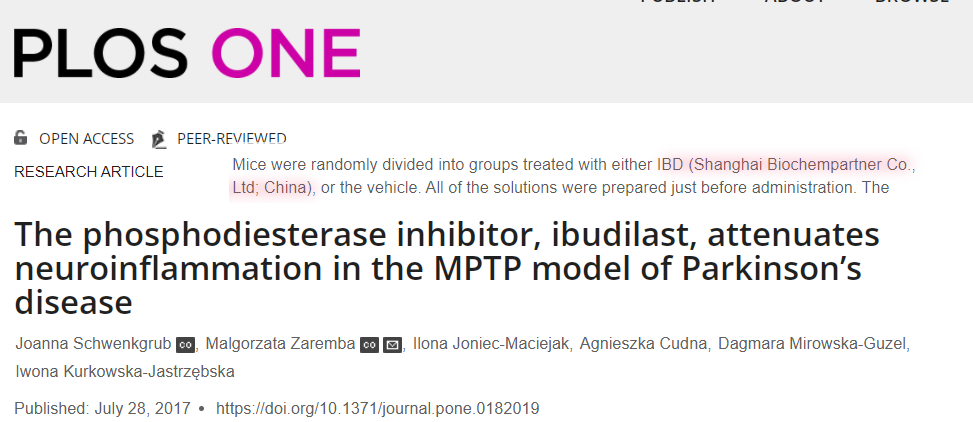The phosphodiesterase inhibitor, ibudilast, attenuates neuroinflammation in the MPTP model of Parkinson’s disease

Abstract Background/Aims Since the degeneration of the nigrostriatal dopaminergic pathway in Parkinson’s disease (PD) is associated with the inflammation process and decreased levels of cyclic nucleotides, inhibition of up-regulated cyclic nucleotide phosphodiesterases (PDEs) appears to be a promising therapeutic strategy. We used ibudilast (IBD), a non-selective PDE3,4,10,11 inhibitor, due to the abundant PDE 4 and 10 expression in the striatum. The present study for the first time examined the efficacy of IBD in the 1-methyl-4-phenyl-1,2,3,6-tetrahydropyridine (MPTP) mouse model of PD. Methods IBD [0, 20, 30, 40, or 50 mg/kg] was injected b.i.d. subcutaneously for nine days to three-month-old male C57Bl/10Tar mice, beginning two days prior to MPTP (60 mg/kg) intoxication. High-pressure liquid chromatography, Western blot analysis, and real time RT-PCR methods were applied. Results Our study demonstrated that chronic administration of IBD attenuated astroglial reactivity and increased glial cell-derived neurotrophic factor (GDNF) production in the striatum. Moreover, IBD reduced TNF-α, IL-6, and IL-1β expression. Conclusion IBD had a well-defined effect on astroglial activation in the mouse model of PD; however, there was no protective effect in the acute phase of injury. Diminished inflammation and an increased level of GDNF may provide a better outcome in the later stages of neurodegeneration.




